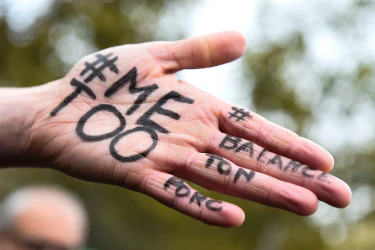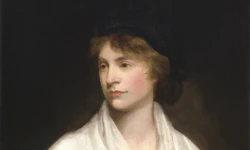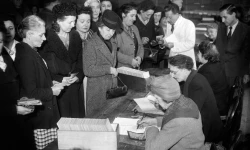
A History of Feminism
Feminism is a major movement of thinking in our society today. Indeed, even after years of struggle, there are still inequalities between men and women. It is a black point for our society. This movement has a rich history in terms of personalities and advances. So Let's discover it in this article.
The appearance of feminism
The appearance of feminism is a particular subject. Indeed, people don’t really agree on the appearance date of feminism. First of all it is good to remember that the feminist struggle was really born during the French revolution and that the word "feminism" appeared in 1872 under the pen of Alexandre Dumas Fils who wrote, "The feminists, pass me this neologism, say: All the evil comes from what one does not want to recognize that the woman is the equal of the man, that it is necessary to give him the same education and the same rights as to the man" in his book The Man-Woman. But other people think that feminism appeared earlier in the history of humanity.

Pre-Revolution Feminism
For some people, feminism could have always existed among our societies, then we can talk of “Protofeminism” . For example, according to Robert Flacelière, feminist ideas were already existing during Antiquity. Notably in Athens where some citizens were in favor of man-woman equality and measures were taken following those ideas.
Later, during the English revolution between 1688 and 1689, churchwomen would have proclaimed that God loved women as much as men and that political decisions should be taken into consideration.
Still later in the Middle Ages, the writer Christine de Pizan fought with her writings for the improvement of the woman's condition. She put forward the woman and exposed her condition. She worked for the Woman by supporting the fact that the Woman is the intellectual equal of the Man for example.

The French Revolution and Feminism
As we have said, the French Revolution marks a real changement in the feminist movement. It is from 1789 that real feminist movements will be set up to fight for women's rights. A major figure in this struggle who is considered a pioneer of feminism is Olympe de Gouges. It is important to know that women played an important role in the French Revolution. They fought like men and strong women also organized the Revolution
After the victory of the people in Paris women started a procession from Paris to Versailles to claim their rights. This event was called "The Women's March" because the procession was essentially composed of thousands of women.
After the publication of the Declaration of the Rights of Man and of the Citizen on August 26 of 1789, Olympe de Gouges wrote the Declaration of the Rights of Woman and of the Citizen in opposition. She will follow the same principle as for the DRMC but by transposing it to women by claiming the equality man-woman. Unfortunately, Olympe de Gouges was judged and executed for her writings.

Feminism development in the West.
The development of feminism in France crossed Europe, especially in Great Britain where women like the writer Mary Wollstonecraft fought for equality between men and women. It was not until about a century later that the feminist struggle emerged in other Western countries.
In Germany it is during the revolution of March 1848 that feminism will develop in the image of what happened in France. Feminism really developed during the People's Spring, a European revolutionary movement.
At the same time, movements such as the Women's Right Movement in the United States were being set up.

How Feminism developed ?
After having seen how feminism appeared in our societies, let's see how it developed in a more contemporary era, in the 20th century for example.
Feminism in the 20th century
The 20th century is a special period for humanity in general. It is notably marked by two events that still have consequences on our societies. The two World Wars led to great societal changes in the years that followed them. First of all, it is important to know that the 20th century began with the first international demonstration of women on March 8th 1911.
This last one had for main claim the right to vote. Then during the First World War it is good to know that women played a very important role in the war effort. If they didn't fight, women went to work in the shell factories. These women were called "munitionnettes" and they had a capital importance. Moreover, the feminist parties thought they could take advantage of the war to obtain rights for women. And this was the case.

During the interwar period, women obtained fundamental rights in Western societies. In 1918, in the United States, in England and in Germany, women obtained the right to vote for example. In France, women fought to be better protected from a legal point of view and to have their importance in the welfare of society recognized thanks to their "maternal" actions. Already at that time women were fighting against the Patriarchy.
It is especially after the second world war that the French woman obtains fundamental rights. First of all, the right to vote for French women was voted on April 29, 1945. Later in 1965, women obtained many rights thanks to the law of July 13, 1965. Thanks to this law, women disassociated themselves from their husbands and obtained the right to open a bank account and to work without the agreement of their husbands. It is then a great turning point for the female condition in France.

The modern Feminism
Now that we have seen how feminism developed during the 20th century, let's look at its evolution today. Feminism has become an important way of thinking. First of all, it is necessary to know that the feminist struggle takes place in new spaces. Social networks are nowadays very important in the fight. It is on these supports that feminism has evolved and has been able to grow in young people's mentalities in particular.
The movements of denunciation of sexual aggression acts have multiplied in these years. In France, the "Balance ton porc" movement has been widely talked about on social networks, and assaults or sexist acts have been denounced by women whose speech has been liberated by the momentum that social networks give to users.

In the United States a similar movement has been organized, the "Me TOO" movement.. This one has improved his impact when personalities denounced the actions of the Hollywood producer Harvey Weinstein.
Today, more than half of the French population considers itself feminist. Feminism has a greater importance than twenty years ago. Today, men are also fighting for gender equality. This is proof that the actions of past activists had an influence on nowadays mentalities.

Feminists have been able to bring to women fundamental rights of life. The right to live normally from the legislative point of view. But there are still problems that we must correct as citizens of the modern world. Firstly, women are not the perfect equal of men. There are still inequalities. Whether it is in the salary simply. Moreover, there are still unacceptable and inconceivable actions and mentalities in our western societies. Finally, feminism has not been successful in all regions of the world .In developing regions, there are still inequalities and acts of abuse that should not be tolerated, we can think of the excision that should no longer exist nowadays. The new generation must become aware of these things so that we can pretend to have a better world from this point of view.
1405
"Le Livre des trois vertus à l'enseignement des dames" of Christine de Pizan
5 and 9 october 1789
The Women's March on Versailles
1791
Publication of the Declaration of the Rights of Women and the Citizen
1872
Appearance of the word "Feminism"
29 april 1945
Women get the right to vote
13 July 1965
Women can work and have an account without agreement
2017
Weinstein affair and the creation of #BalanceTonPorc
Past and Modern, two figures of Chinese Feminism
Read the articleFeminist in progress, how to apprehend Feminism
Read the article